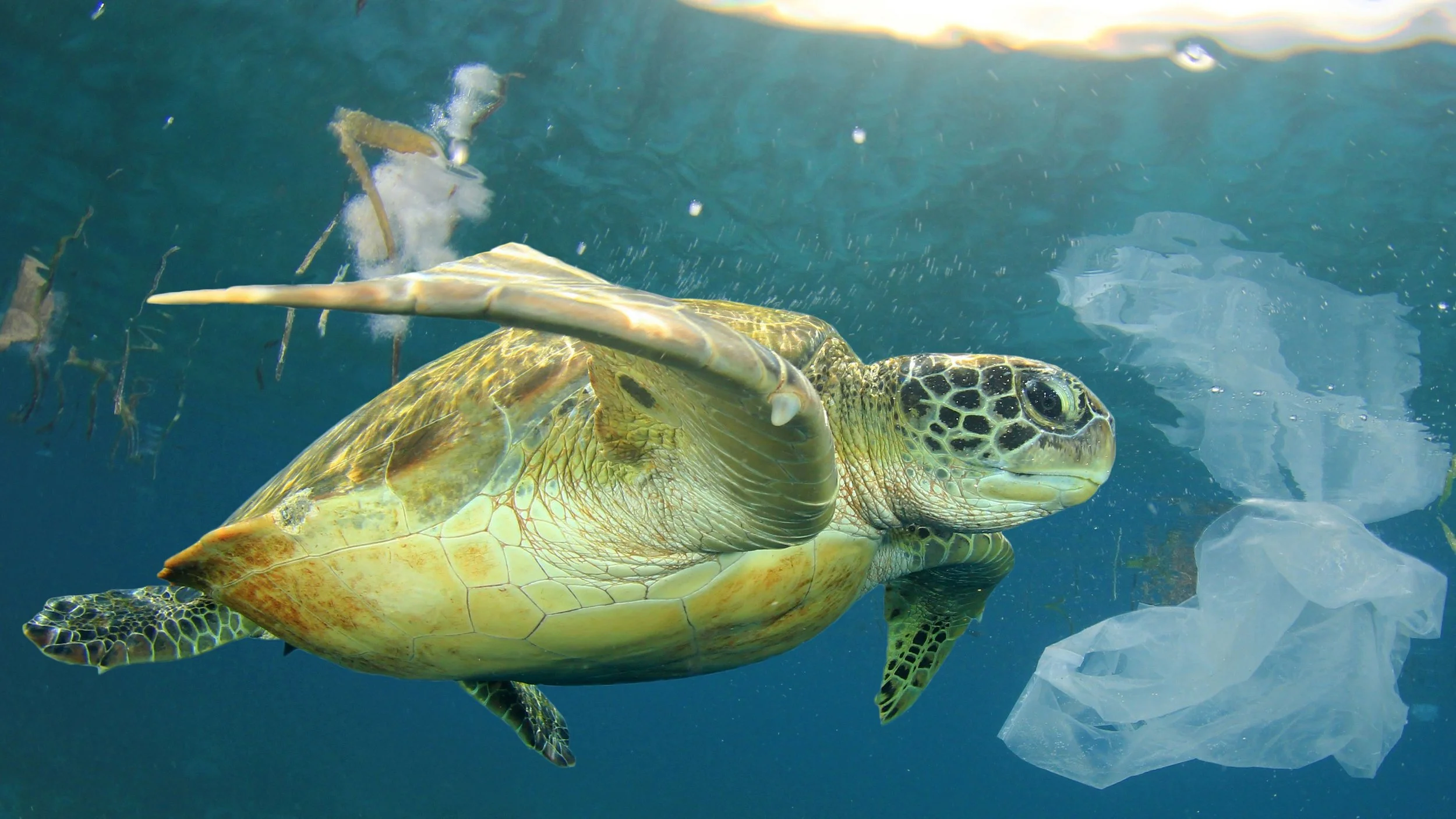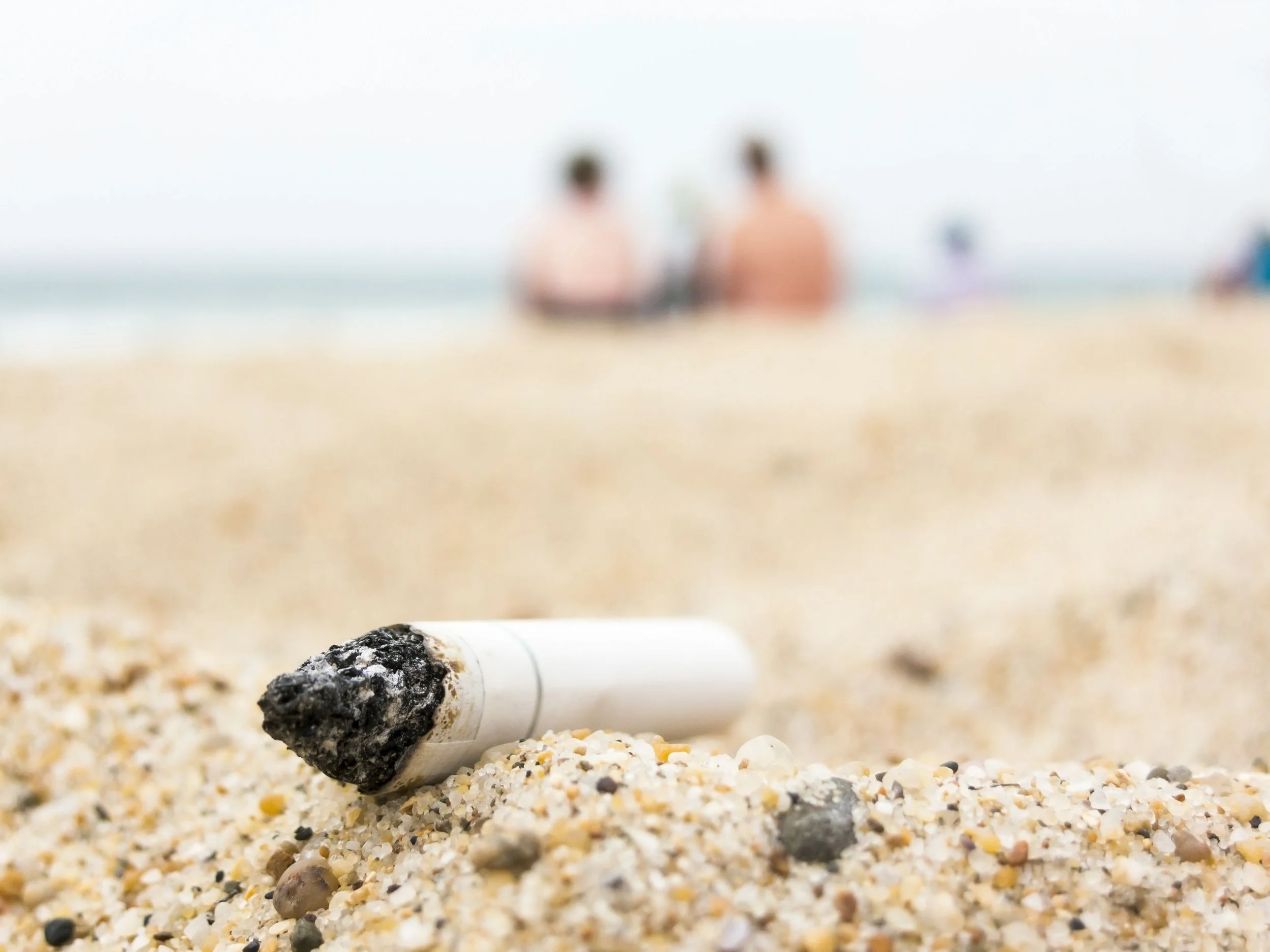How to Achieve Green when Beaching and Boating
(Hampton Roads, Va., June 6, 2023) – It’s prime time to start enjoying watery vistas in Coastal Virginia, with lots of options for landlubbers and seafarers alike. According to the Virginia Institute of Marine Sciences, Virginia has 7,213 miles of shoreline at sea level. That includes areas where land meets water at the Atlantic Ocean, Chesapeake Bay, and tidal rivers. To help keep these boundaries free of litter, pet waste, hazardous chemicals and sewage spills, one regional group has advice on easy ways to keep your experience in nature clean and green.
“Pollution created by beachgoers and boaters has a ripple effect that impacts the health of Hampton Roads waterways and shorelines—and those who enjoy spending time there,” said Rebekah Eastep, a team leader with the askHRgreen.org public awareness and education initiative.
Between May and September, the Virginia Department of Health (VDH) monitors the bacteria levels at beaches to protect the public from elevated levels of harmful bacteria. Concentrated pet and wildlife waste, sewage discharge from boats, sanitary sewer overflows and backed-up septic systems are often to blame for spikes in harmful bacteria. VDH officials will issue a beach closure notice and restrict shellfish harvesting when bacteria levels reach unsafe levels. In addition, cigarette butt litter and other trash contribute to a sandscape that is very different from being “postcard perfect.”
“There are simple steps you can take before launching your boat or heading to the beach that will go the distance in keeping our coastal areas clean and open from shore to shore,” Eastep said.
When Beaching and Boating:
Leave no trace
On land, secure any litter from your day’s play and dispose of cigarette butts in the garbage—not in the sand or water.
Contain all trash. In an instant, litter can take flight with the lightest ocean or bay breeze. Avoid littering on the water by having covered trash bins on board and securing these to the boat. On land, secure any litter from your day’s play and dispose of cigarette butts in the garbage—not in the sand or water.
Avoid using plastic bottles, containers and straws. According to the National Oceanic and Atmospheric Administration, plastic is the most prevalent type of marine debris found in the ocean. It comes in all shapes and sizes. Those measuring five millimeters in length (the size of a sesame seed) are called “microplastics.” Aquatic life and birds can mistake these tiny particles for food, which can lead to death when digested. When at the beach and on the water, avoid plastic altogether by packing reusable water bottles and food and snack containers.
Recycle. Designate a separate covered container for collecting recyclables, such as plastic bottles and metal cans. See if marina or public beach access areas offer any shoreside recycling receptacles or take your items to recycle at home.
Dispose of pet waste properly. Bacteria from pet waste may pose a threat to swimmers, wildlife, surfers and other dogs—not to mention how it can lead to beach closures. Leave no “business” unattended. Use a bag to pick up after your pet and dispose of it in the trash.
Do not feed the wildlife. Tempting as it may be to interact with feathered friends, do not feed ducks, geese or seagulls while enjoying your day on the coast. Wildlife is best left to forage for their own food sources. Human food can cause birds to become sick and may encourage aggression towards humans in an attempt to scavenge unattended food.
On the Water:
Keep the boat’s engine well-tuned to avoid fuel and oil leaks. Secure an oil-absorbent pad or pillow in the bilge and under the engine where drips may occur. Check the pads often and dispose of them as hazardous waste at a marina or local hazardous waste collection center.
Safely store chemicals. Boat maintenance requires a variety of cleaners, paints, oils, fuels and other hazardous chemicals. Securely store all chemicals at home or on board to prevent spills. When fuel meets water, it forms an oily “blanket,” preventing fresh air from penetrating the water’s surface. This deprives marine life of oxygen, resulting in dangerous and deadly consequences.
Consider electric boating. Electric boats are gaining in popularity with people who want to avoid managing oil, fuel and upkeep associated with gas-powered boats. Electrified Marina in Norfolk and VB Boat Rentals in Virginia Beach are two local companies that provide battery-powered electric boating rentals in Hampton Roads, with electric charging on site. In addition to offering a clean ride, electric boats are quiet, too.
Respect wildlife. Keep an eye out for wildlife when boating to avoid injury associated with the motor. Only fish in permitted areas and give large creatures such as sea turtles and dolphins a wide berth to prevent your boat from striking them.
Manage sewage wastes properly. Never discharge your boat’s sewage-holding tanks within three miles of shore or in a no-discharge zone like the Lynnhaven River. Use marina pump-out stations and shoreside facilities instead. HRSD provides free 25-gallon pump outs at many locations in Hampton Roads. If your boat does not have an installed toilet, use a port-a-potty and empty it at a marina dump station or bathroom.
For more tips on all things green in Hampton Roads, visit askHRgreen.org.
About askHRgreen.org askHRgreen.org is your go-to resource for all things green in Hampton Roads – from recycling tips and pointers for keeping local waterways clean to water-saving ideas and simple steps to make local living easy on the environment. Launched in 2011, the region-wide public awareness and education campaign is administered through the Hampton Roads Planning District Commission and powered by the following members: The cities of Chesapeake, Franklin, Hampton, Newport News, Norfolk, Poquoson, Portsmouth, Suffolk, Virginia Beach, and Williamsburg; the counties of Gloucester, Isle of Wight, James City, Southampton, Surry and York; the town of Smithfield; and HRSD. Like askHRgreen.org on Facebook, follow on Twitter and Instagram, tune in to YouTube and catch the “Let’s Talk Green” blog, written by a team of local experts.
Media Contacts:
Rebekah Eastep, HRPDC Senior Environmental Education Planner
(757) 420-8300; reastep@hrpdcva.gov
Elizabeth Evans, Red Chalk Studios
(757) 705-7153; elizabeth@redchalkstudios.com


